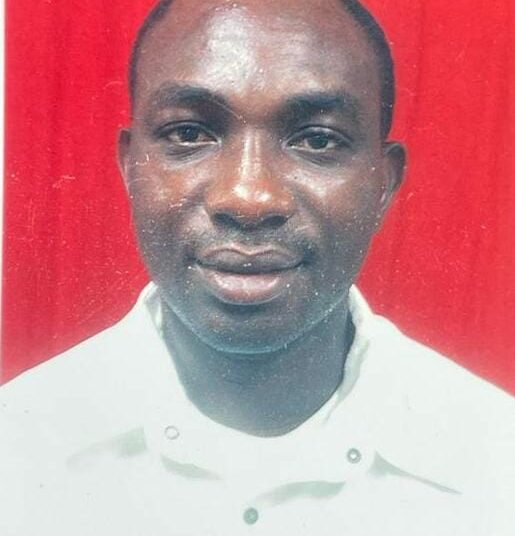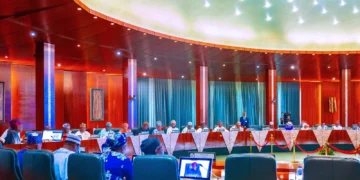Nigeria is the most populous black nation in the world, Africa’s most populous country, largest economy, and the leading oil-producing nation with a population of about 184 million people. The people have diverse cultures, tribes, religions, and traditions, speak different languages, and are still united despite their differences.
The journey to the present democratic dispensation was never without enormous challenges, as the nation and its people have passed through several political and economic struggles that threatened this great nation’s unity, survival, and existence. However, Nigeria is still standing tall, strong, solid, and hopeful as it continues navigating and finding ways to overcome the challenges facing her and every situation that impedes her growth and development.
After independence on October 1, 1960, the nation’s founding fathers strived to direct the country on progress, growth and development path through their vision and well-thought-out programs to make the nation self-sufficient rather than depending on others for economic and political survival.
Setting the pace for growth and development by the founding fathers, Nigeria was said to have been placed on the right path for the future and projected to become one of the top 10 world’s largest economies after Japan due to its fast economic growth and development pace. After a few years of self-rule, statistics and indices show Nigeria’s potential was abundant and endless. Her future was bright and sure, and the nation was said to be a favourite destination for investors.
Unfortunately, the enviable dreams of the founding fathers of this nation are still yet to be fulfilled because of the kind of leaders Nigeria has produced over the years. The country has been plagued by corruption and leadership issues for many years, including the present democratic dispensation, which is short-sighted, self-centred, and corrupt-minded. They led the country into retrogression through bad leadership, endless corruption, and anti-people policies rather than guiding it into progress, growth and development, which would have made life good, better and meaningful for the citizenry.
As the country made progress, the different sets of leaders that made its ways to lead the nation got into power through various questionable means. They destroyed the pace of development and growth and led the nation dictatorially using military degrees and other undemocratic means. At this time, the desirable dreams of the founders of this nation became dwindling because of the kind of leaders the country had produced over the years.
In this present Republic, the 16 years of the Peoples Democratic Party (PDP) was allegedly entrenched in corruption, especially during the tenure of President Goodluck Jonathan; hence the people wanted a change and strived for it, and for the first time in the history of Nigeria, a sitting President and Government in power lost an election to an opposition party, the All Progressives Congress (APC). The people used their will and determination to effect a leadership change through a peaceful and democratic process because they were fed up with the PDP’s years of misrule, which was fraught with corruption and insecurity.
There were high hopes for the coming of President Muhamadu Buhari as he attempted the seat for the fourth time as a presidential candidate before succeeding. This time, he campaigned on the mantra of ‘change’. He promised to lead the administration of the APC-led Federal Government to focus on three cardinal issues, which include growing and developing the Nigerian economy, fighting corruption and securing the nation and its people. Still, he failed to hit the ground running immediately after ascending to power on May 29, 2015.
The Buhari-led APC administration started on the wrong footing. First, it took the President over six months to constitute the Federal Executive Council (FEC). When it was finally formed, Nigerians were disappointed with the calibre of persons chosen as Ministers as it never met their expectations. It became visible that most appointments made so far were based on ethnic colouration and tribal bigotry.
The new administration of the APC presented itself as light and hope for change and promised a new Nigeria that would be birthed and would be a place where things would be done correctly. It is becoming clear that the Buhari-led administration is not leading us towards their promises that the rule of law would be strictly followed. Leaders would work for the nation’s best interest rather than themselves or their cronies, and the country would be restored in all her lost glory and will gain its respect in the comity of nations.
These promises are far from being fulfilled, instead, corruption has become the order of the day and is gradually eating deep into the fabrics of this nation. Corruption is so rampant that it has become a way of life for many Nigerians; no thanks to our leaders who have continued to encourage corruption with their extravagant lifestyles and insatiable appetite for unexplainable wealth, which they continue to flaunt, while the people live in poverty, and pushing the youths to the point of no return.
The anti-corruption war of the APC-led Federal Government is a shame. The anti-corruption fights lack transparency as they are skewed against the opposition, dissent opinions, voices, and those not politically aligned with the government. Most of those who were well-known members of the PDP and had been having running battles with the EFCC defected to APC from the PDP, and their cases with the anti-corruption agency were systematically dropped.
The arrest of Sambo Dasuki in December 2015 by the State Security Service (SSS) for allegedly stealing $2.1billion arms money, known as “Dasukigate” is a case in study. To date, the former National Security Adviser (NSA) is still in detention without trial. This is another example of how this government is going after opposition members and perceived enemies without recourse to the rule of law.
The government ignored the rule of law and showed no interest in prosecuting the suspects, even while other Nigerians who participated in the arms deal scandal have secured themselves with our collective wealth, leaving the rest of us to our fate in the face of insecurity. Buhari government is not ready to fight corruption but instead it’s interested in a vindictive and revenge mission 30 years after being overthrown as a Military Head of State in December 1985. Recall that Sambo Dasuki, a retired Army officer, played a role in that event.
Under this administration, corruption has become fervent; our reputation in the international community is nothing to discuss—this monster has damaged our public, social, and moral lives. Many of our social infrastructure, like hospitals, schools, roads and other public institutions are all in a state of disrepair as money meant for maintenance of these infrastructures and the building of new ones that will benefit the people have all been diverted by our alleged corrupt leaders; putting the nation and its people in a state of despair. Our so-called leaders live affluent lives, travel abroad for vacations and treatments, and even hide stolen funds in foreign banks. Their children and wards are being sent overseas for studies, and they deliberately neglect our health and educational systems.
It seems that the administration has lost in the euphoria of power as it is evident through the inconsistent and incoherent programmes and policies that they were never prepared to lead the country out of its economic woes and secure it from all forms of insecurity, but only focused on wrestling power from the PDP, without a proper and articulated public policy plan, vision and programmes.
It seems Nigeria is reverting to the dark ages of military dictatorship and PDP misrule as the rule of law has now been abandoned, concerns and respect for human rights are damping, citizens’ rights are threatened, and people are arbitrarily arrested and perpetually detained without trial, wish-hunting of opposition and dissenting voices. The country’s unity is threatened, and the citizens’ fears are heightened.
Several indications revealed that this administration is confused due to its unpreparedness. It has lost its core mandate to lead the country to economic growth and prosperity, fight corruption through transparency and accountability, and secure its people from internal and external threats. The APC came with no plans on how to lead the nation into the progress that it desired as it has taken wrong steps, which has led to more hardship for the people, retrogression for its economy; the naira took a nosedive, and lives are no longer secured with unwarranted killings by gunmen, kidnappers, bandits as reports of citizens dying daily across the country continue to increase.
Nigeria is in a dilemma. We can not achieve any meaningful progress and development with these types of leaders who have no vision and are not interested in the progress of this nation. The present leaders, who pride themselves as progressives, are taking us into a retrogressive path that leads to nowhere but further plunges the country and its people into suffering and poverty, worsening the already critical situation that the PDP-led government established.
We are calling on Nigerians to stand up for this great nation and rescue it from the hands of incompetent leaders with no vision. Civil Society Organisations (CSOs), Advocacy for Good Governance, Youth for Peace and Development in Niger Delta, Society for Social Justice, Poverty Alleviation for the Poor Initiative, Center for Responsive Leadership and Transparency, Coalition for Change in the FPRT in Nigeria, African Development Initiative For Poverty Alleviation, Centre for Leadership Support and Social Progress (CLSSP), Nigeria Bar Association, Right to Education for Development, NANS and other well-meaning Nigerians who believe in good governance must rise up to the occasion.
It’s time for us to move forward and bring on board true democratic leaders that would build a brighter future for Nigeria as one of the most significant countries in the world. Our country is the best place to live globally, with great potential and vast opportunities, beautiful landscapes, weather, godly and friendly people, and abundant natural and human resources. We possess what it takes to be one of the greatest nations on the surface of this earth. We can only achieve this if we get the right leaders committed to transparency, accountability, rule of law, and ethical leadership.





